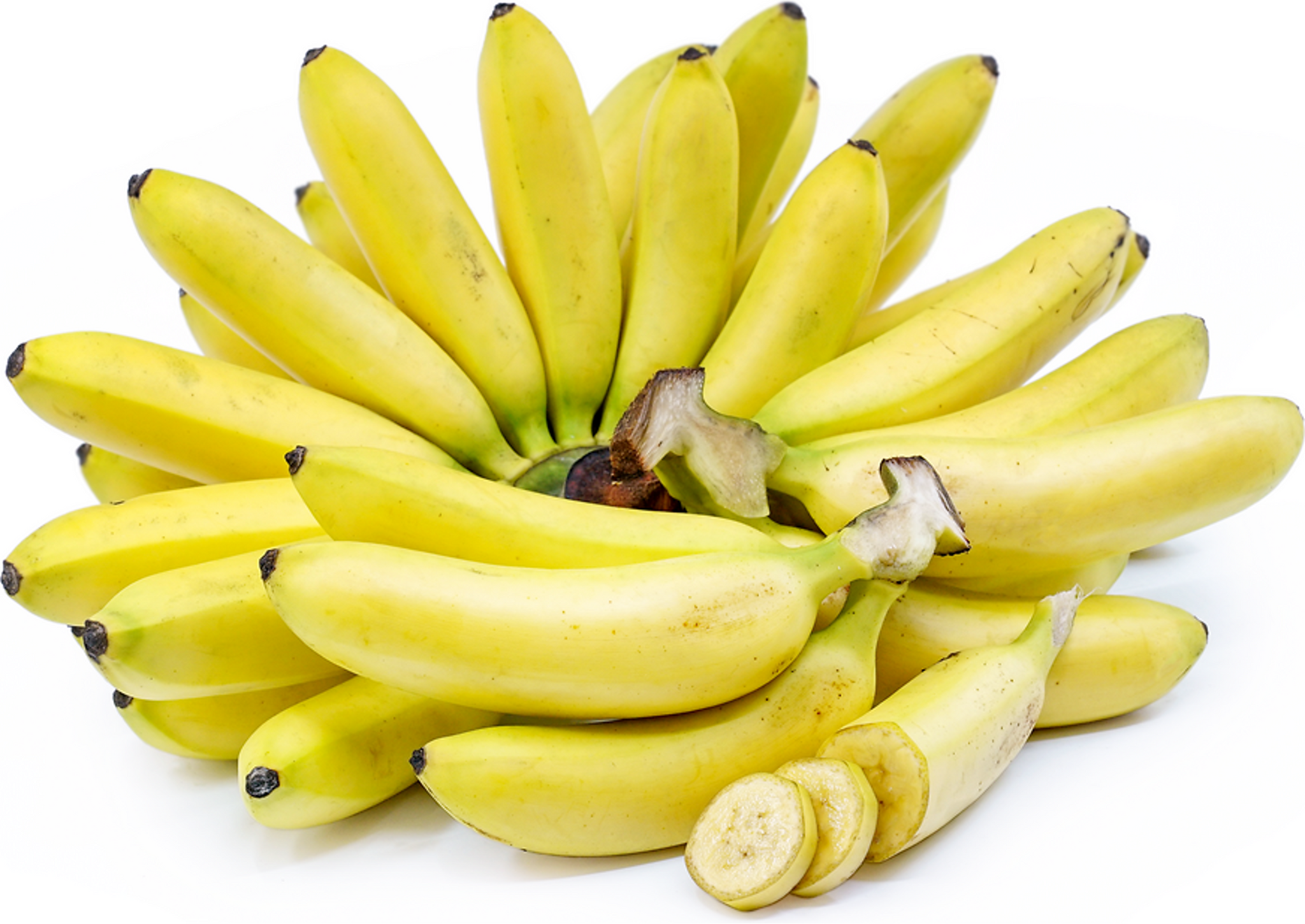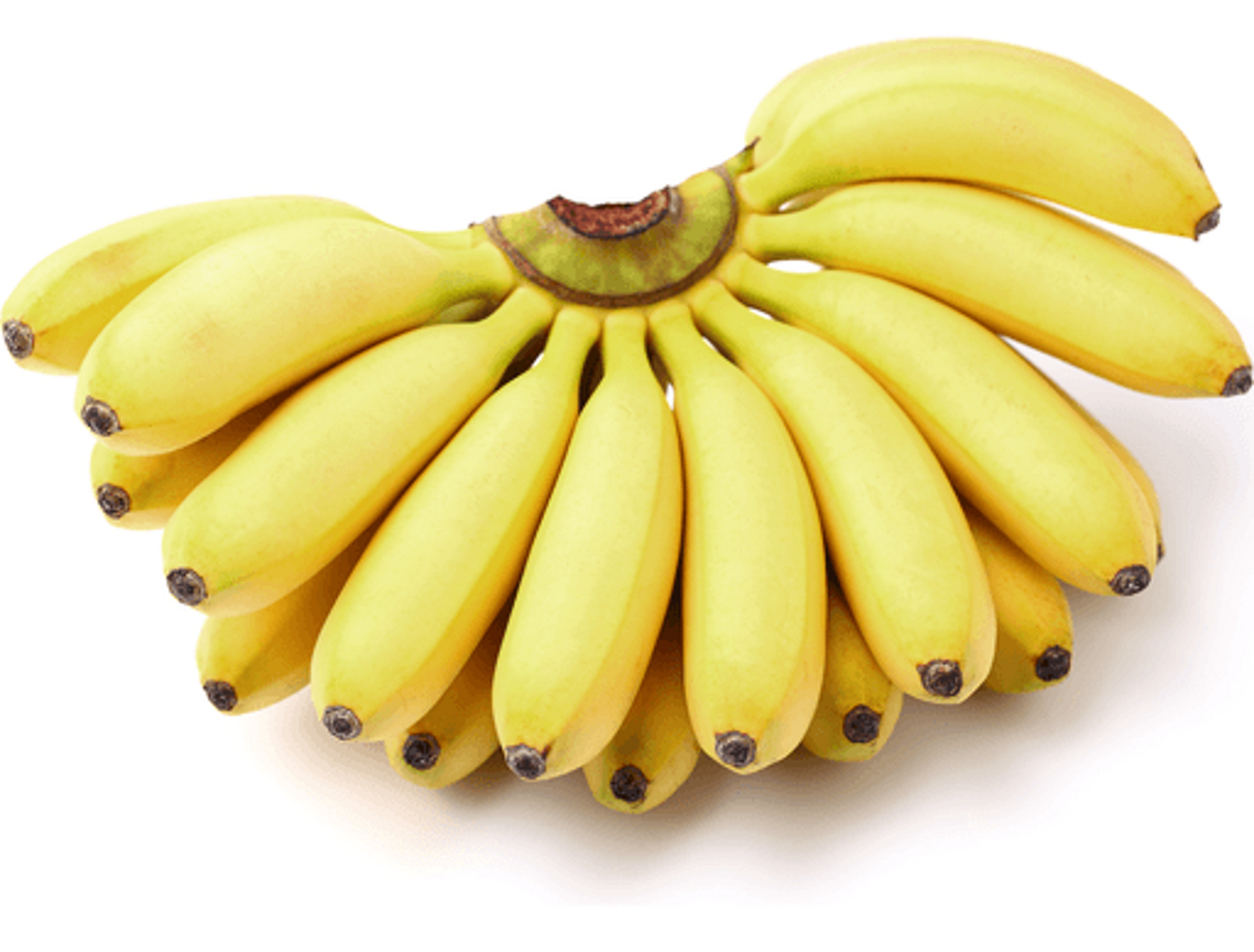Apple Banana

Apple Banana
Available:
In Stock
- Product Weight: 454 g
- Category: Fresh Fruits & Vegetables, Grocery & Gourmet Foods, Vegetables
$1.49

Apple bananas are small fruits, averaging 10 to 14 centimeters in length, and have a short, thick appearance with a straight to slightly curved, cylindrical shape. The bananas bear a distinct protruding, rounded tip on the non-stem end, sometimes labeled as the nose, and the peel is smooth, taut, and semi-thin. Apple bananas mature from pale yellow, golden yellow, to almost black when ripe and develop dark markings. The black-brown markings are a sign of the flesh sweetening and are not a sign of spoiling. Underneath the peel, the cream-colored flesh is astringent, acidic, and firm when unripe, softening and developing a dense and creamy consistency with maturity. Apple bananas have a perfume-like aroma with tropical, flowery, and fruity notes. When ripe, the bananas contain a subtly sweet, tangy flavor with faint pineapple, strawberry, and apple nuances.
Seasons/Availability
Apple bananas are available year-round.Current Facts
Apple bananas, botanically a triploid AAB hybrid of Musa balbisiana x acuminata, are small, tropical fruits belonging to the Musaceae family. The fragrant, short, and thick bananas grow in bunches on plants that can reach up to 4 meters in height and are a popular cultivar commonly grown in Southeast Asia, South America, and Hawaii. The name Apple banana is a general descriptor used to encompass many different varieties of small bananas cultivated worldwide, earning the fruits other common names including Manzano, Silk, Latundan, and Tundan bananas. The fruits are not produced commercially on a large scale, paling in comparison to cavendish production, but Apple bananas are increasing in popularity worldwide as a snack banana. Apple bananas are rumored to have earned their name from their faint, sweet and tangy, fruity flavor and are primarily grown in home gardens or through small farms for fresh use, consumed as a dessert cultivar. The plants are also grown as an attractive ornamental in home gardens.Nutritional Value
Apple bananas are an excellent source of fiber to stimulate the digestive tract and potassium to balance fluid levels within the body. The fruits are also a good source of vitamin C to strengthen the immune system, amino acids to help carry nutrients and build muscles, vitamins B12, D, and A, and provides lower amounts of calcium, manganese, and copper.
Apple bananas are small fruits, averaging 10 to 14 centimeters in length, and have a short, thick appearance with a straight to slightly curved, cylindrical shape. The bananas bear a distinct protruding, rounded tip on the non-stem end, sometimes labeled as the nose, and the peel is smooth, taut, and semi-thin. Apple bananas mature from pale yellow, golden yellow, to almost black when ripe and develop dark markings. The black-brown markings are a sign of the flesh sweetening and are not a sign of spoiling. Underneath the peel, the cream-colored flesh is astringent, acidic, and firm when unripe, softening and developing a dense and creamy consistency with maturity. Apple bananas have a perfume-like aroma with tropical, flowery, and fruity notes. When ripe, the bananas contain a subtly sweet, tangy flavor with faint pineapple, strawberry, and apple nuances.


































